QuestionWe already have poodle/terrier and is about 3 year old we are getting a toy party poodle. It was 6 weeks old yesterday.We brought it home for about 5 hours and had to take it back because it was not eating. These puppies were actually 3 weeks before they were to be born because the mother was very sick and moved. When is it best to bring them home and how is it best to deal with the dog we already have? We it be hard for them to get along or is there a trick to make it easier on everyone?
AnswerHi Cynthia,
Six weeks is too young to get a puppy. The best time to bring home a new puppy is at 8-10 weeks of age. Now is the time to make sure your adult dog's vaccinations are up to date to ensure the puppy is protected from disease!
Even though your puppy's mother was too ill to raise her litter, a young puppy still learns important social skills from it's litter mates. They learn about pecking order, they learn about different ways of play, and they can actually learn some bite inhibition. If taken away from mum and litter mates too early, some of these little things can make a big impact when it comes to cohabitation with humans and other animals.
I will assume your adult dog is known to get along with other dogs. If your adult dog is well socialized and enjoys being with other dogs, they should get along nicely, though there will still be a period of adjustment.
It's best to introduce a new puppy to your adult dog in a place that's new to both of them. Because dogs are territorial by nature, you want them to meet on equal footing rather than on your original dog's home turf. If possible, have two people help out by handling your dog and puppy for you. You don't want either of them to think you're playing favorites. Let them sniff around and check each other out while you talk to them softly. Watch for body language that could signal aggression, which includes:
* Staring
* Stiff-legged walking
* Barred teeth or growling
* Ears laid back or raised hair on the neck or back
* One dog trying to mount the other
If you notice any aggressive behavior, distract the dogs and lead them away from each other. Let them cool off and introduce them again a little later. If the meeting goes well, take them both for a walk.
The key to introducing a puppy to your dog is to be alert and in control at all times. If you have more than one other dog, they should meet your puppy one at a time. This will allow you to stay in control and reduce some of the tension in their first encounter.
Always be present to supervise your dogs when they're with your new puppy. If you can't be around, separate them or put them in their crates. Allow at least a month before you allow them to be alone together. Things may look peachy, but once the pack leader is away, i.e. you, they may jockey for position. That means potential aggressive behavior. It only takes an instant for an older dog to injure your puppy. Be particularly wary if you're unsure whether your older dog has been properly socialized with other dogs. You may be creating a dangerous situation by putting with your puppy.
Puppies usually pester adult dogs unmercifully. Before the age of four months, puppies may not recognize subtle body postures from adult dogs signaling that they've had enough. Well-socialized adult dogs with good temperaments may set limits with puppies with a warning growl or snarl. These behaviors are normal and should be allowed. Adult dogs who aren't well-socialized, or who have a history of fighting with other dogs, may attempt to set limits with more aggressive behaviors, such as biting, which could harm the puppy. For this reason, a puppy shouldn't be left alone with an adult dog until you're confident the puppy isn't in any danger. Be sure to give your adult dog some quiet time away from the puppy and definitely give him (or her), lots of individual attention by taking him with you on errands and long walks. This special time will pay off in the long run, as it will enforce his position in the "pack", and his relationship with you. Dogs do get jealous.
Your adult dog has a schedule of feeding times, walks, playtime, etc. try to stick to it, and keep his life as normal as possible. Don't let the puppy take your dog's toys, or sleeping space.
Puppies are used to sharing food with their litter mates but an older dog may not appreciate this. Feed the dogs with separate bowls in separate areas, and have a toy or toys on hand just for the new puppy.
You can read more about introducing your dog and new puppy here:
http://www.ehow.com/how_2194673_introduce-puppy-older-resident-dog.html
Best of luck,
Patti

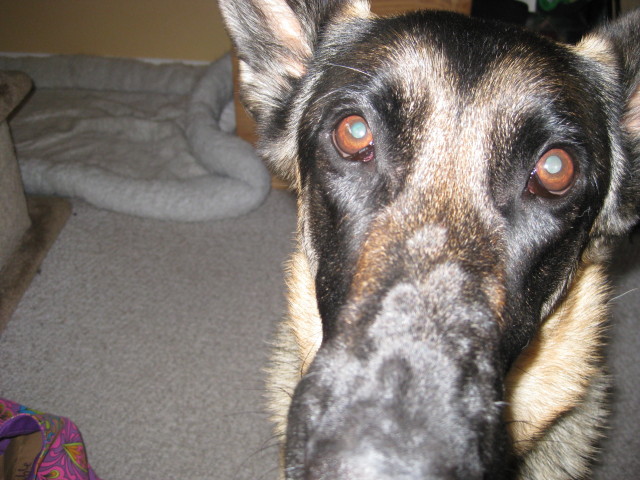 bumps on dogs nose
Question
bumps on nose
My dog has bumps on her nose..Sh
bumps on dogs nose
Question
bumps on nose
My dog has bumps on her nose..Sh
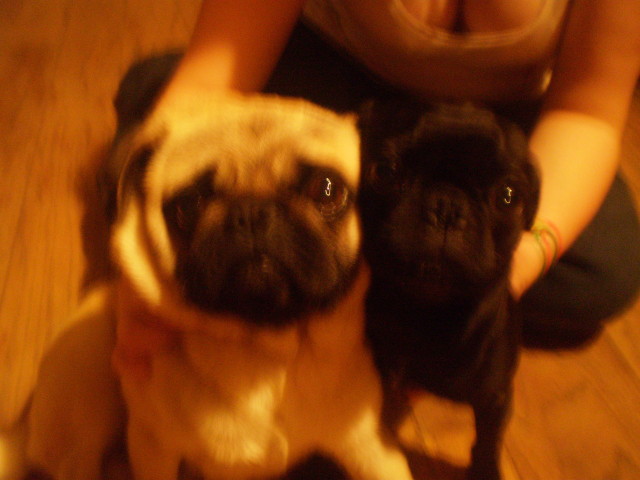 pugs
Question
micah and lacy
my male and female are the same
pugs
Question
micah and lacy
my male and female are the same
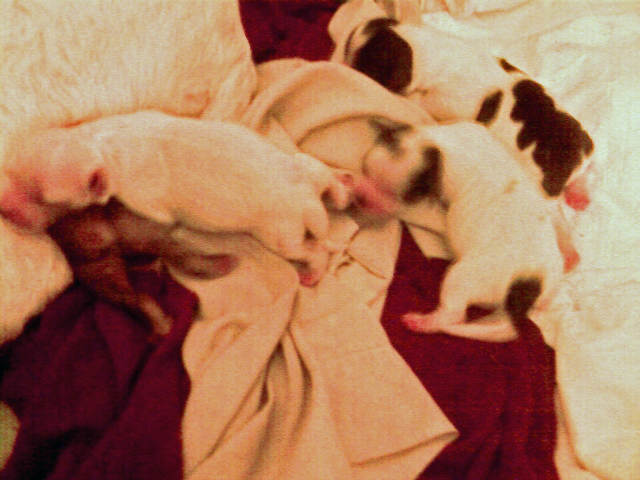 worried about mom dog not lactating enough
Question
angel and her pups jus
I have a small mixed br
worried about mom dog not lactating enough
Question
angel and her pups jus
I have a small mixed br
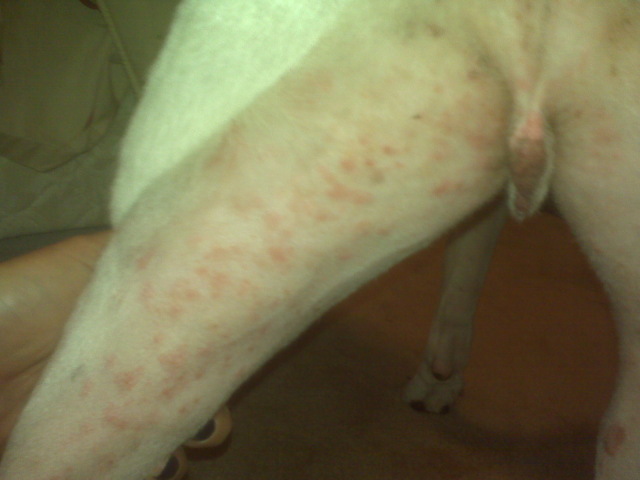 Large dog with possible poison ivy
Question
Guero
My poor dog has led a rough life to date
Large dog with possible poison ivy
Question
Guero
My poor dog has led a rough life to date
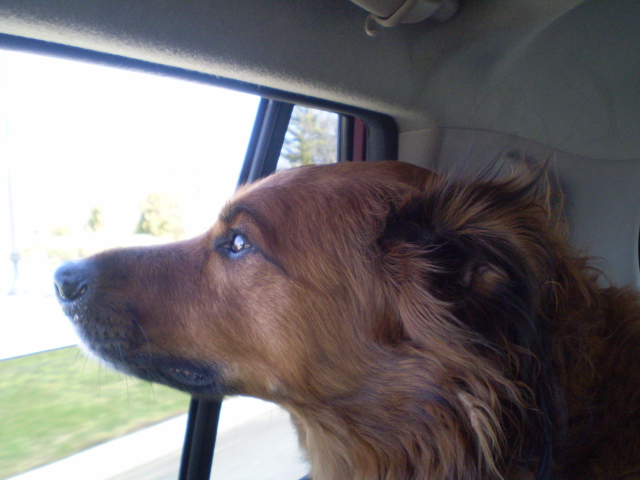 aggressive kids and dogs
QuestionI have a hyper aggressive 6 yr old who always p
aggressive kids and dogs
QuestionI have a hyper aggressive 6 yr old who always p